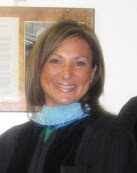We learned how to:
- setup an account
- moderate comments
- add gadgets
- comment to each other
Great class...let's keep blogging!
This is a educational blog for my courses at New Jersey University in Jersey City, NJ.
Great class...let's keep blogging!
 Amazing!
Amazing!

Stage 4: Techno-constructivists --These are the teachers who integrate technology into the curriculum so that it not only complements instruction but redefines it. The true techno-constructivists have come through the previous three stages and have realized the full potential of technology to help children build on their own experiences, construct their own meanings, create products, and solve problems successfully.

The term "computer virus" is sometimes used as a catch-all phrase to include all types of malware. Malware includes computer viruses, worms, trojan horses, most rootkits, spyware, dishonest adware, crimeware, and other malicious and unwanted software), including true viruses. Viruses are sometimes confused with computer worms and Trojan horses, which are technically different. A worm can exploit security vulnerabilities to spread itself to other computers without needing to be transferred as part of a host, and a Trojan horse is a program that appears harmless but has a hidden agenda. Worms and Trojans, like viruses, may cause harm to either a computer system's hosted data, functional performance, or networking throughput, when they are executed. Some viruses and other malware have symptoms noticeable to the computer user, but many are surreptitious.
Most personal computers are now connected to the Internet and to local area networks, facilitating the spread of malicious code. Today's viruses may also take advantage of network services such as the World Wide Web, e-mail, Instant Messaging, and file sharing systems to spread."
It got me thinking,I better update my own virus software. Maybe you should,too!